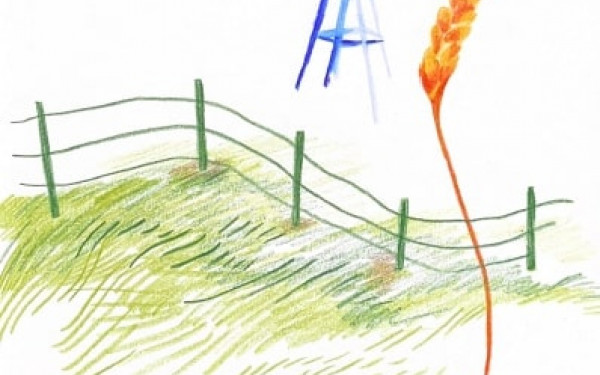Coffee or Tea? Fire Cider Rain Showcases Immigrant Existentialism
Rhiannon Ng Cheng Hin’s Poetry Collection Explores Experience Extraordinarily
This summer, I read books on the immigrant diasporic experience, such as Sam Selvon’s The Lonely Londoners, and Bhanu Kapil’s How to Wash a Heart. These books, both emotionally captivating, inspired me to search for more immigrant literature that I could continue to relate to as an immigrant myself.
When looking through the different books that are coming out this fall, Gatineau based Chinese-Mauritian author Rhiannon Ng Cheng Hin’s Fire Cider Rain immediately caught my attention; it was exactly the genre of literature I was looking for. This poetry collection discusses the immigrant experience, diaspora, family and generational trauma due to long-lasting effects of colonialism from her perspective as a Mauritian woman of Chinese descent.
Right after reading the first few pages, I knew I had found a gem. The first thing I noticed was the strong use of sonoric devices, like assonance and alliteration, that lend this poetry an air of grandeur when read aloud. These poetic devices, I’ve come to find, are an effective way to convey emotion, since it can oftentimes be too challenging to express cultural nuances and images in a poem. Some of the words Ng Cheng Hin employs don’t always make sense together on a literal level. She writes lines such as “along a fibrous ridge of rain,” and “watching seatbelt signs shudder in amber.” Even though this bothered me at first, they mesh well sonically and aesthetically.
Besides, isn't it part of the anti-colonial spirit to refute the validity of the English language’s norms? I quickly accepted this characteristic of Fire Cider Rain and set the book down to let those first pages simmer. Then, I continued to read.
Reading the rest of the book was a true delight. Ng Cheng Hin put her everything into the quality of this collection. Thematically, she explores maternal relationships, environmental issues, colonization and the coldness of North America, both physically and morally.
The poems I enjoyed most were “THE LAWS OF THERMODYNAMICS III” and “THAW.” The former is set at the back of a bus during the winter as the speaker ponders multiple existential questions: how to understand belonging to the motherland while living somewhere else, how to recognize who you were before leaving, how to find that self, how to mediate distance and time away. This internal narrative is juxtaposed by pastoral, landscape imagery and “sterile hallways and white envelopes.”

“THAW” is almost like a sister poem for “THE LAWS OF THERMODYNAMICS III.” It feels like a continuation of a journey, the stanzas being spaced out in a way that makes you cut your breath as you read them, like the start of a train engine. It is also set in the winter, with the speaker yearning for warmth and spring’s “apologetic return.” The role of the motherland as a muse is felt throughout these poems.
Speaking of her motherland, Mauritius, Ng Cheng Hin also writes striking poems on oil spills, cyclones and other tragedies that happen on her island. In “OIL SPILL I,” her mother shaves her head and sends her hair in a ziploc bag to help clean the oil spill, yet in “OIL SPILL II,” she hears on the news that the spill gets worse. This shows how watching and mourning from afar, she feels powerless. A particularly striking quote from “OIL SPILL II” that shows the frustration felt by many islanders over these accidents reads: “do not tell me, it says that the architecture of this ocean is not built upon the backs of weary islanders.”
Ng Cheng Hin’s mother plays a big role in most of these poems, and she doesn’t shy away from discussing how difficult maternal relationships can be. In “DICTIONARIES IN THE SAND,” she writes: “2 I fear the most painful parts of Māmā have been lying dormant in my sacrum my entire life and my unborn children can taste them in their sleep.” I have yet to read a better description of how terrifying generational trauma feels, not when thinking about oneself, but about one's future children. This line alone completely sold me on Ng Cheng Hin’s Fire Cider Rain, but it captivated me with every page, and I cannot recommend it enough.
Coming out on Sept. 20, this book will certainly resonate with many immigrants here in Quebec. Even if you are not an immigrant, the poetry is written so beautifully it can be enjoyed by all.
This article originally appeared in Volume 43, Issue 2, published September 13, 2022.







